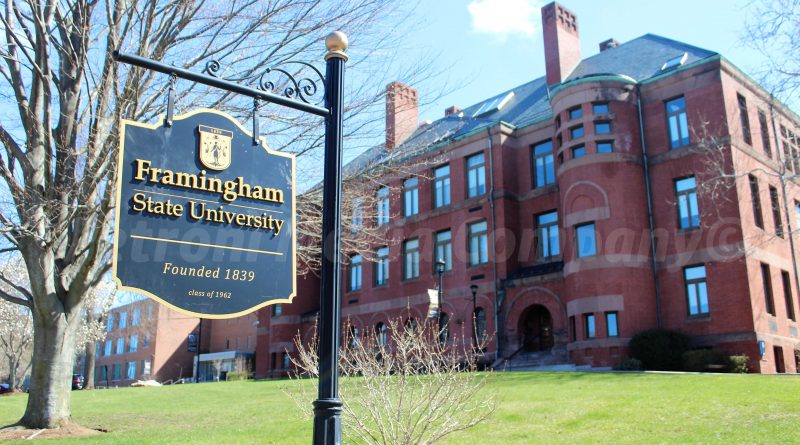In full transparency, the following is a press release submitted to SOURCE media for publication.
***
[broadstreet zone=”53230″]
FRAMINGHAM – Framingham State University has been recognized as one of the nation’s most environmentally responsible colleges for the 11th time by The Princeton Review®.
The education services company features Framingham State in its online resource, The Princeton Review Guide to Green Colleges: 2023 Edition, published October 25, 2022. The guide is accessible for free at https://www.princetonreview.com/college-rankings/green-guide
The Princeton Review chose the schools in the guide based on its survey of administrators at 713 colleges during the 2021-22 academic year and surveys of students attending the colleges.
The company editors analyzed more than 25 survey data points to select the 455 schools chosen for the guide.
[broadstreet zone=”54526″]
“Climate Change is a defining crisis of our time,” says Framingham State University President Nancy Niemi. “The current generation of students is going to lead our way forward. At Framingham State, students in our Department of Environmental Science and Policy and Department of Environment, Society and Sustainability are gaining the skills, techniques and knowledge to solve the major social-environmental problems of our planet. We also lead through our actions as an institution,
and will continue to move our campus toward carbon-neutrality.”
Framingham State has completed three major construction projects in recent years that have earned LEED (Leadership in Environmental Engineering and Design) Gold or Silver certification, including North and West residence halls and the Hemenway Laboratories science addition.
“We strongly recommend Framingham State University to the increasing number of students who care about the environment and want their ‘best-fit’ college to also ideally be a green one,” said Rob Franek, The Princeton Review’s Editor-in-Chief. “Framingham State demonstrates an exemplary commitment to sustainability and to green practices—and it offers excellent academic programs.”
[broadstreet zone=”59947″]
Franek noted that The Princeton Review has seen an increasing level of interest among students in attending green colleges. Of the more than 10,000 college applicants the company polled for its 2022 College Hopes & Worries Survey, 77% said having information about a college’s commitment to the environment would affect their decision to apply to or attend a school. A report on the findings of the survey, which also polled parents of college applicants is
downloadable at www.princetonreview.com/college-hopes-worries.
The University has taken a comprehensive approach to environmental sustainability, guided by a Climate Action Plan, which was written in 2010 and is updated every year by Framingham State’s Campus Sustainability Coordinator. Major efforts include a comprehensive energy project that converted heating fuel from oil to natural gas, a project that has reduced emissions by 33 percent and will save the University $15 million over the 20-year life of the system. The University also has solar PV arrays on three campus facilities, including the campus center and athletic building.
[broadstreet zone=”59983″]
Other steps the University has taken to reduce energy consumption include eliminating lunch trays in the dining hall to conserve water; installing water-saving dishwaters; altering class schedules to reduce the number of days commuter students have to drive to campus; and installing a university vegetable garden. FSU has received considerable support from food service provider Sodexo, which has also implemented a composting program.


